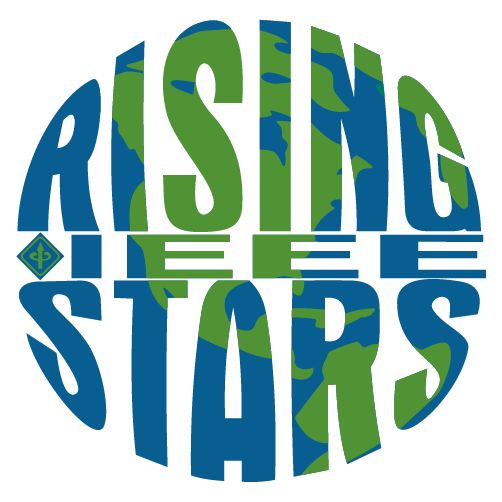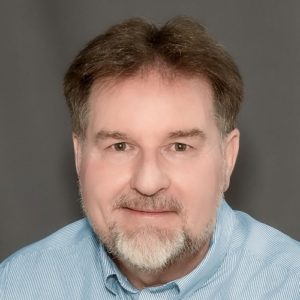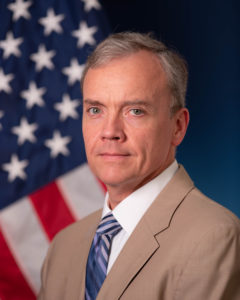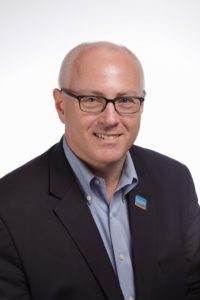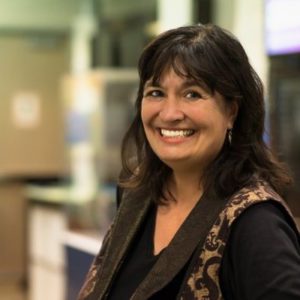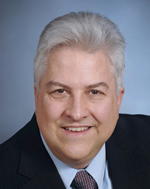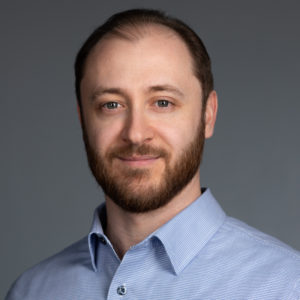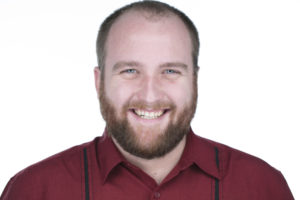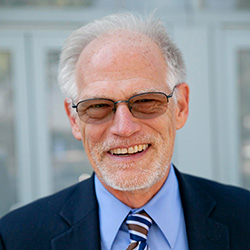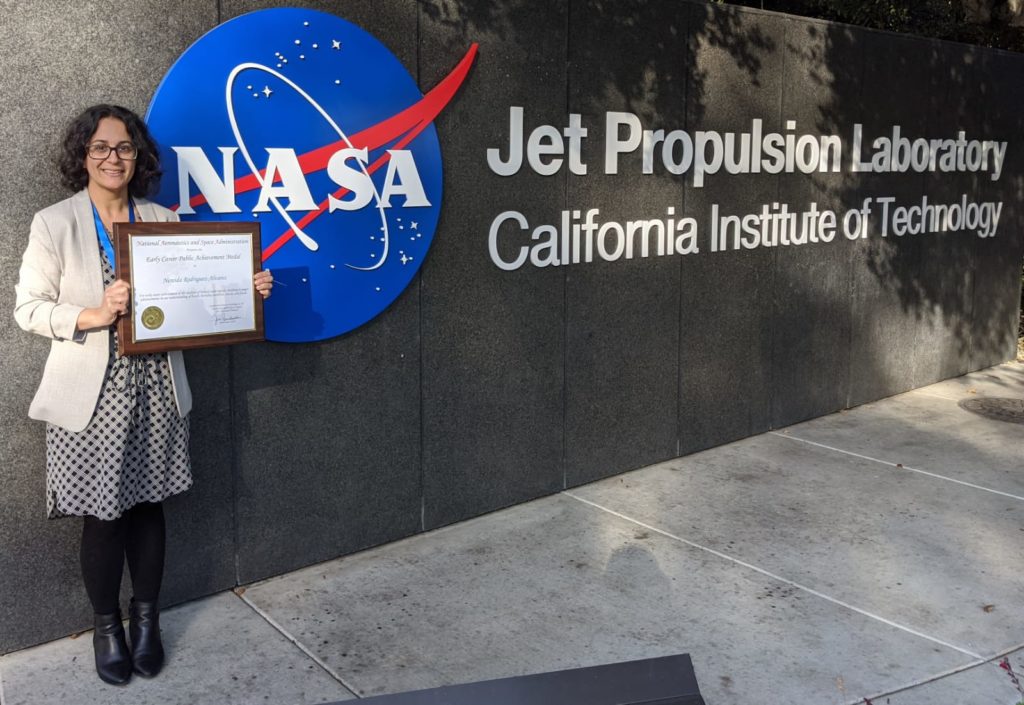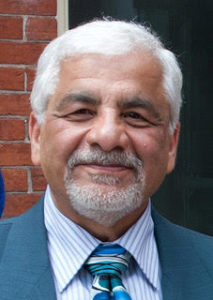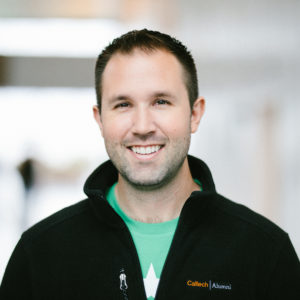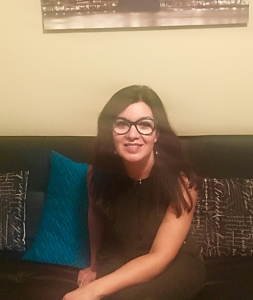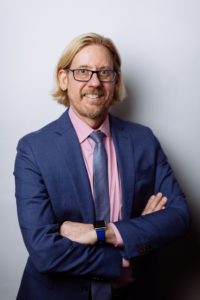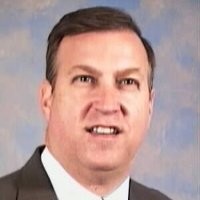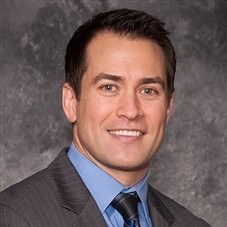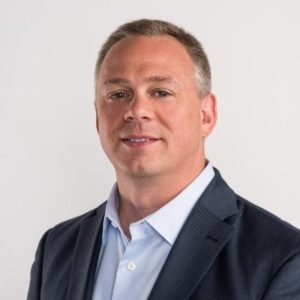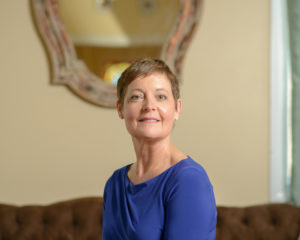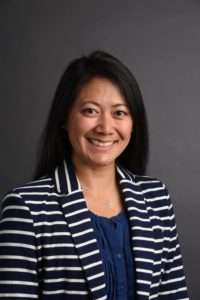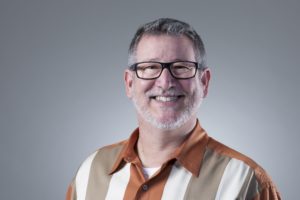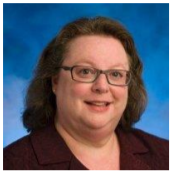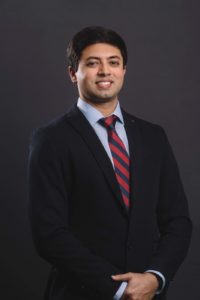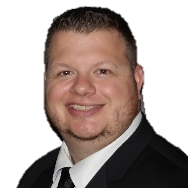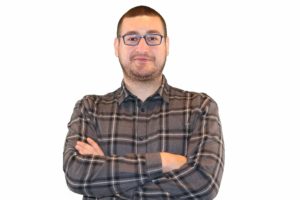Mark Montgomery
Mark Montgomery is the founder, chief executive officer, and chairman of the board of KYield, Inc. He is the inventor of the now patented AI system that serves as the foundation for the Kyield OS: ‘Modular System for Optimizing Knowledge Yield in the Digital Workplace’, issued August 23, 2011.
Mr. Montgomery was an independent business consultant from 1992 – 1997. In 1996, he created a knowledge systems (“KS”) lab and retrained in software development and network engineering, becoming proficient in object-oriented programming and multiple languages, then progressed to analytics, search, and artificial intelligence. He designed, built, and operated a data center and multiple networks from scratch. In 1997 and 1998, Mr. Montgomery first conceived the theorem “yield management of knowledge” in his KS lab while operating Global Web Interactive Network.
In 2002, Mr. Montgomery founded Initium Capital, an early stage venture capital firm, which he led until 2009. During his tenure as managing partner for Initium Capital, he reviewed thousands of technologies and business plans, worked with many entrepreneurs, researchers and universities, and served as a panelist at national tech transfer conferences, entrepreneur groups and universities. In 2004, he attended Thunderbird School of Global Management’s 12-week executive program where he received certification as a global business leader. He also served as business plan judge for Thunderbird Master of Business Administration students in 2004 and 2005.
After relocating to Santa Fe, New Mexico, Mr. Montgomery was a frequent visitor and invited guest at the Santa Fe Institute, participating in presentations from scientists around the world in discussing and evaluating emerging research. His articles have been published in books, journals, AltAssets, Wired, Computerworld, The Santa Fe New Mexican, and Enterprise Viewpoint.
Session: Artificial Intelligence in 2020: Where have we been, where are we at now, and where are we headed
Dr. Timothy P. Grayson
Dr. Timothy Grayson is the Director of the Strategic Technology Office (STO) at DARPA. In this role, he leads the office in development of breakthrough technologies to enable warfighters to field, operate, and adapt distributed, joint, multi-domain combat capabilities at continuous speed. These technologies include sensing, communications, and electronic warfare technology and the supporting tools and decision aids needed to compose, integrate, and operate complex combat architectures.
Dr. Grayson came to STO in 2018 from a varied career in government and industry. Most recently he was the founder and president of Fortitude Mission Research LLC, a consulting company specializing in organizational and operational strategy development and technology analysis related to defense, security, and intelligence. His primary client was DARPA, and in this role, he provided direct support to the Deputy Secretary of Defense’s Modernization Study, of which DARPA was the lead in the fall of 2017. Dr. Grayson helped spearhead the project that resulted in “A Blueprint for Winning,” a framework for how to modernize the Department for the 21st century.
Dr. Grayson has extensive government experience. He spent several years as a senior intelligence officer with the Central Intelligence Agency (CIA) in the Directorate of Science and Technology and culminating in a tour at the Office of the Director of National Intelligence. Prior to CIA, Dr. Grayson was a program manager and senior scientist at DARPA. He initiated new programs in space situation awareness and networked sensing and also managed DARPA’s quick reaction program portfolio, successfully deploying technology to Afghanistan during the early days of Operation Enduring Freedom.
Dr. Grayson holds a Ph.D. in Physics from University of Rochester, where he specialized in quantum optics, and a B.S. in Physics from University of Dayton with minors in mathematics and computer science.
Jennifer A. McClain
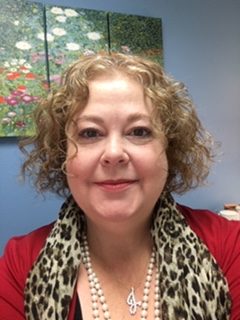
Jennifer began her career at the IEEE in 1997 as Associate Editor for IEEE Transactions on Plasma Science and IEEE Transactions on Magnetics. She spent eight years with the IEEE Standards Association editing standards, aiding working groups with the standards development process, and as Managing Editor of the IEEE Standards Information Network, publishing handbooks and guides to help with the implementation and understanding of standards. Now with IEEE Educational Activities, she is a Senior Product Manager building eLearning courses for continuing and professional education and managing the IEEE Certificates Program.
Jennifer holds a B.A. with History and English Majors from Western Michigan University, Kalamazoo, MI, and attended the Masters of Education in Social Studies program at West Chester University, West Chester, PA, obtaining a Pennsylvania Secondary Education Teaching Certificate in Social Studies.
Session: IEEE Learning Network: Continuing & Professional Education
IEEE’s new “IEEE Learning Network” provides learners with the ability to search for IEEE courses in one place and to take continuing education eLearning courses on this new learning management system. The presentation will provide an overview of the IEEE Learning Network and highlight opportunities for professional development offered through Educational Activities.
Mostafa Mortezaie
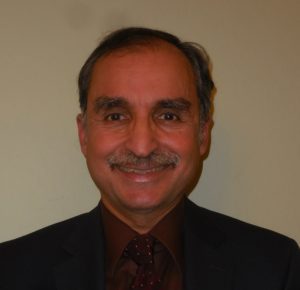
Mostafa Mortezaie has twenty eight years of academic experience and eight years of industrial experience at Honeywell and Watkins-Johnson Company. He is currently teaching at DeVry University and San Jose State University. His area of expertise include Control Systems, Signal Processing, and IoT.
Mostafa has been involved in the IEEE volunteerism at different levels over the past twenty eight years serving as Student Branch Counselor, Region 6 Student Activities Chair, Professional Activities Committees for Engineers (PACE) Chair, and currently as the Educational Activities Chair.
Stephen Welby
Stephen Welby is the Executive Director and Chief Operating Officer of the Institute of Electrical and Electronics Engineers (IEEE). IEEE is the world’s largest technical professional organization dedicated to advancing technology for the benefit of humanity. IEEE and its members inspire a global community to innovate for a better tomorrow with more than 423,000 members in over 160 countries, and through its highly cited publications, conferences, technology standards, and professional and educational activities. IEEE is the trusted “voice” for engineering, computing, and technology information around the globe.
Prior to joining IEEE, in 2015 Stephen was nominated by President Obama and confirmed by the US Senate as the Assistant Secretary of Defense for Research and Engineering. In this role, he served as the chief technology officer for the U.S. Department of Defense, leading one of the largest and most complex research, development, and engineering organizations in the world. He oversaw a $12.5B annual investment portfolio, managed internal and collaborative research and engineering efforts, drove a culture that valued innovation, and supported the department’s global technical engagement.
Stephen has more than three decades of government and industrial experience in technology and product development, including holding a number of senior leadership positions at the Defense Advanced Research Projects Agency (DARPA). His technical experience includes development of leading edge aeronautical and space systems, robotics, machine learning, high-performance software, and sensor systems.
Stephen holds a bachelor of science degree in chemical engineering from The Cooper Union for the Advancement of Science and Art, a master’s degree in business administration from the Texas A&M University, and master’s degrees in computer science and applied mathematics from The Johns Hopkins University. Stephen is a fellow of the IEEE.
Kathy Herring Hayashi
Kathy Herring Hayashi has extensive experience in the semiconductor industry writing, managing and analyzing electronic design automation software and workflows. Since her education at UCSD, she has worked at various San Diego engineering companies such as Cadence Design Systems, Syntricity and Unisys, developing, deploying and analyzing advanced software tools used to create computer and mobile phone chips. She has held a variety of positions including leadership roles in technical development, applications engineering and information technology. Kathy currently works at Qualcomm in San Diego. In 2018, she was the recipient of the Athena Pinnacle Award Winner for Individual in Technology and in 2017, the San Diego County Engineering Council Dr. Thomas Avolt Kanneman Award for Outstanding Service. She is a member of the Athena Forum for Executive Women, 2019 Chair of the San Diego IEEE Section and a member of the 2019 Impact lead program, sponsored by the San Diego Chamber of Commerce, providing foundations for civic and community engagement. Kathy is an IEEE Senior Member and IEEE Eta Kappa Nu Honor Society member.
Session: Keeping up with Emerging Technologies
Technology advancements continue to move an astounding rates. It’s important to be always learning, but keeping up with the latest trends can be challenging. In this presentation, Kathy will talk about innovation and techniques for keeping up with advances in the latest technologies. Using examples from earlier in her career, she’ll also discuss key factors and indicators that can lead to the success (or not) of getting leading edge products to production.
Mark Schneider
Mark Schneider is a pioneer in Computer engineering design and Digital workflows. He has over 40 years of knowledge and experience in civil engineering and computer enabled engineering.
Mr. Schneider has over with twenty years of experience in civil engineering, starting with computer aided 3D design and modeling in 1982 on mainframe systems leading the Civil Innovation for large design, analysis and modeling projects. In 1997, Mark joined a system integrator then transitioned to Bentley Systems in 2001. At Bentley, Mark has gained experience with global technical leadership for integrated Infrastructure lifecycle solutions from design applications to digital twins for construction and operations in a common data environment.
Mr. Schneider is currently the Global Solutions Architect – Digital Workflow Adviser for Bentley Systems Inc. providing guidance on advancing digital delivery and infrastructure for engineering and solution providers around the world.
Activities include:
- Plenary speaker at the Smart Cities conference in Hyderabad India
- Speaker at the IEEE Rising Star Conference on Smart cities, Digital twins and the internet of Things
- Presented integrated Lifecycle solutions for Utilities and Transportation industries around the world.
- Global Technical Director for Utilities and Governments
- Building Information modeling “BIM” and Graphic Information Systems “GIS integration implementations
- Participated in the development of the iTwin platform for Infrastructure Digital twins
Volunteer Efforts (current):
- Mr. Schneider is the founding Director of the SMART Competition, a nonprofit organization. The SMART Competition is a high school and university team-based CTE and STEM education program.
- Chairman of the Elder Board Calvary Church of the Valley
- Founder of the Arizona MicroStation User group
- Future City Competition – Arizona Volunteer
- Arizona MicroStation User group founder and Treasure
- Financial Peace University instructor and coordinator
James Conrad
James Conrad has spent an equal amount of time working in industry and academia. He received his bachelor’s degree in computer science from the University of Illinois, Urbana, and his master’s and doctorate degrees in computer engineering from North Carolina State University. He is currently a professor at the UNC Charlotte and Associate Department Chair. He has served as an assistant professor at the University of Arkansas and as an instructor at North Carolina State University. He has worked for IBM, Ericsson/Sony Ericsson, and two start-up companies.
He teaches and conducts research in the areas of embedded systems, robotics, parallel processing, artificial intelligence, and engineering education. He has published eight books in the field of embedded systems and robotics.
Dr. Conrad also serves IEEE as an ABET Program Evaluator, and serves the community on the Board of Directors for FIRST North Carolina, the state organization supporting the FIRST Robotics program.
Dr. Tekin Meriçli
Tekin Meriçli, Ph.D. is a co-founder and the CTO of Locomation. Prior to Locomation, he was a Special Faculty – Commercialization Specialist at the National Robotics Engineering Center (NREC) of Carnegie Mellon’s Robotics Institute where he was also a Senior Robotics Engineer. Since 2003, Dr. Meriçli has been practicing systems engineering across a wide variety of robots and systems including autonomous and semi-autonomous ground vehicles, mapping, state estimation, and operator assist systems, perception and motion planning for ground and aerial robots, industrial automation and process improvement, wheeled tour guide and service robots, intelligent assistive robotic manipulators and search and rescue robots, and various legged robots. He also has over 40 publications in the areas of robotics and computer sciences, including best paper award recipients.
Session: Autonomous transportation: One step at a time
Long-haul trucking is one particular industry that currently faces serious and pressing challenges like driver shortage, and autonomous driving can help alleviate that pain. We founded Locomation with the vision of developing safe and robust commercial-grade autonomous driving technologies. Given the founders’ over a century long collective experience in building and deploying autonomous systems, we know that full autonomy in real world settings is a very long tailed problem. That is why we are starting with Autonomous Relay Convoying (ARC), which virtually connects two trucks together, keeping an active driver in the lead truck and allowing autonomous technology to operate the follower truck. The lead driver acts as an environmental filter to the autonomy system on the follower truck, greatly reducing the complexity it needs to handle. With the second driver taking mandated rest, twice as much freight volume is transported per driver shift. ARC will be deployed much sooner than fully autonomous trucks, penetrate the market much faster, and will be the first step towards achieving full autonomy.
Tim Worboys
Tim Worboys received his BASc in Computer Engineering from the University of Waterloo in Canada before starting his career at LinkedIn in 2012. Tim has worked at LinkedIn through its hyper-growth phase between 2012 and present where the number of employees grew from 2,100 to 9,200 in only four years. During this time he grew from an entry level Software Engineer to his current role as Sr Manager, Software Engineering. His team focuses on driving productivity on top of LinkedIn’s private cloud and Azure as well as driving knowledge sharing at scale across the company.
Tim is passionate about leadership and management and enjoys speaking and writing about these topics as well mentoring and helping people to grow their careers. Tim has held several positions in the IEEE including Vice Chair, Leadership and Training for the Young Professionals and his current roles as Region 6 – Central Area Chair, and Social Media Chair for the Communications Committee of the IEEE-USA. In his spare time, you can find Tim hiking, snorkeling, kayaking or whitewater rafting.
Session: LinkedIn Systems and Network Architecture
In 2011 releasing a version of LinkedIn was hard. Releases happened once every two weeks and took a significant amount of time to do. 50% of the time the release of the site would fail leaving new product launches unreleased and engineers unhappy and discouraged. In 2011, we hit a tipping point and decided it was time to seriously invest in this problem. We stopped all product development in the company and invested in [in]Version – a way to exponentially improve developer productivity and allow us to more rapidly release. In this talk we’ll talk about [in]Version and how we changed development at LinkedIn to allow for our economies of scale, but how we’ve made other drastic changes to our deployment cadence through information, modeling, and automation to empower our engineers to go wicked fast.
Tom Coughlin
Tom Coughlin, President, Coughlin Associates is a widely respected digital storage analyst as well as business and technology consultant. He has over 35 years in the data storage industry with multiple engineering and management positions at high profile companies.
Dr. Coughlin has many publications and six patents to his credit. Tom is also the author of Digital Storage in Consumer Electronics: The Essential Guide, which was published by Newnes Press. Coughlin Associates provides market and technology analysis as well as Data Storage Technical and Business Consulting services. Tom publishes the Digital Storage Technology Newsletter, the Media and Entertainment Storage Report, the Emerging Non-Volatile Memory Report and other industry reports. Tom is also a regular contributor on digital storage for Forbes.com and other blogs.
Tom is active with SMPTE, SNIA, the IEEE (he is Director for IEEE Region 6 and active in the Consumer Electronics Society where he is chairman of the Future Directions Committee) and other professional organizations. Tom is the founder and organizer of the Annual Storage Visions Conference (www.storagevisions.com), a partner to the International Consumer Electronics Show, as well as the Creative Storage Conference (www.creativestorage.org). He is the general chairman of the annual Flash Memory Summit. He is a Senior member of the IEEE, Leader in the Gerson Lehrman Group Councils of Advisors and a member of the Consultants Network of Silicon Valley (CNSV). For more information on Tom Coughlin and his publications go to www.tomcoughlin.com.
Dr. Nereida Rodriguez-Alvarez
Dr. Nereida Rodriguez-Alvarez is currently a scientist within the Planetary Radar and Radio Science group at the Jet Propulsion Laboratory (JPL), California Institute of Technology. She got her Ph.D. in Telecommunications, specializing in passive remote sensing applications, from the Universitat Politecnica de Catalunya. She has more than a decade experience in bistatic radar using signals of opportunity and the development of retrieval algorithms for Earth science. She was a post-doctoral researcher at the School of Aeronautics and Astronautics at Purdue University and was part of the science team of the CYclone Global Navigation Satellite Systems (CYGNSS) NASA Earth Venture mission for more than two and a half years. She has also engaged entrepreneurial activities several times along her scientific career.
Dr. Rodriguez-Alvarez interests are focused on using signals of opportunity to improve the remote sensing of wetlands, polar sea ice, crop growth and floods. Rodriguez-Alvarez has been recently awarded to lead the 2019 Blue Sky Study “The Feasibility of Using Near-Earth Objects as Transportation Vehicles for Strategic Small Low-Cost Sensing Instruments”. She extends her research activities into the planetary radar field by exploring the use of astrophysical radio sources as signals of opportunity to sense planets, moons and asteroids.
Dr. Rodriguez-Alvarez is the recipient of a NASA Early Career Public Achievement Award in 2019. She is an IEEE senior member. She serves as technical reviewer of the IEEE Transactions on Geoscience and Remote Sensing (TGRS), IEEE Geoscience and Remote Sensing Letters (GRSL), IEEE Journal of Selected Topics in Applied Earth Observations and Remote Sensing (JSTARS), and Remote Sensing MDPI journal. She is guest editor of a special issue in Remote Sensing MDPI journal. She is also part of the editorial board of Remote Sensing MDPI ‘Engineering Remote Sensing’ section
Session: Signals of Opportunity in Earth and Planetary Science
Signals of opportunity has proven an excellent tool to increase our knowledge in many Earth related natural phenomena. While I introduce the topic and its potential, the talk will focus on how my research expanded to bring innovation to the field.
Fawzi Behmann
Fawzi Behmann held various executive and leadership positions with Tier 1 companies in the areas of communications and networking in Canada and US. He championed the development of Telecom Network Management systems, led efforts in rolling out product releases for network edge and core switch and marketed SoC product line and roadmap. In 2009, Fawzi founded TelNet Management Consulting Inc. offering professional services in the areas of technology positioning, and building smart networking solutions. Fawzi engaged in international forums speaking on disruptive technologies and use cases. Fawzi co-authored a book on Collaborative IoT, and received several awards from Industry and IEEE. Fawzi holds a Bachelor of Science with honors and distinction; Masters in Computer Science and Executive MBA.
Kevin Noertker
Kevin Noertker is Co-Founder and CEO of Ampaire, an aerospace startup based in Los Angeles. Ampaire is on a mission to be the world’s most trusted developer of practical, compelling electric aircraft. The company is building commercial electric planes that are cleaner, quieter, and significantly less costly to operate.
Leading Ampaire enables Kevin to combine his technical and management skills with his entrepreneurial vision, love for the outdoors, and passion for things that fly. He graduated with honors from Caltech, and serves as a Director of the Alumni Association. Prior to Ampaire, Kevin held positions of increasing responsibility in research and development and program management at Northrop Grumman, leading the development and deployment of advanced aircraft and satellite technologies. He has a proven track record for initiating and delivering innovative technical solutions, building and motivating teams, and optimizing systems. Kevin is committed to building communities and connecting the world.
Session: Advanced Flight and Autonomous Aircraft
Ampaire today is test flying the world’s largest hybrid-electric plane, with plans to conduct demonstration flights on commuter airline routes in the coming months. The company is on the fast track to introducing, cleaner, quieter, less costly aircraft to benefit airline and general aviation operators, and improve the passenger experience. The future begins with in-service aircraft adapted for electric propulsion and proceeds to exciting new, clean-sheet and high-performance all-electric aircraft. Hear firsthand from Ampaire’s Co-founder and CEO, Kevin Noertker on Ampaire’s vision, plans and industry-leading progress toward making a new era of electric aircraft a reality.
Nancy Lomeli
Nancy Lomeli is a Senior Manager with Micron Technology, Inc. working on next generation Non-Volatile Memory. Her team focuses on developing and integrating innovative semiconductor technology for 3D NAND memory that will be available in the industry in 2 – 3 years. In her 15 years of experience, she has contributed to or led technical innovations in solar cell technology, advanced chip packaging, laser printing, phase change memory and NAND memory.
As a witness of Alzheimer’s disease and Multiple Sclerosis (MS) within her own family, she values the importance of advancing memory technology which, in the short term, provides assistance and extended independence for the ill while enabling longer term medical breakthroughs via Big Data and A.I. advancement.
Throughout her career, she has advocated for diversity of ideas and challenged the status-quo to foster an environment of innovation and execution. She has held positions in Semiconductor Engineering, Technology Strategy, Competitor Analysis, Quality Management and University Professor.
In her free time, she enjoys volunteering as a Judge in the Idaho Regional FIRST Robotics Competition, speaks at Girls Gone Tech (GGT) events in Boise, and participates in Women In Technical Career (WITC) panels. She is also the Program Chair of the annual IEEE Workshop on Microelectronics and Electron Devices (WMED) – a workshop organized by the IEEE EDS Boise Chapter and supported by Micron.
Nancy has a B.S. in Computer Science and an M.S. in Electronics Engineering from the University of Guadalajara, Mexico.
Session: Role of Memory in AI/Autonomous Vehicles/Big Data Applicationsand A.I.
Man-made semiconductor memory and human memory have a lot in common. Understanding how one works helps develop the other to achieve breakthroughs in technical innovation and medical research. Big data and A.I. are helping us get closer to mimicking the human brain with the hopes of extending its transience.
Mark Wehde
Mark Wehde is Interim Chair of the Mayo Clinic Division of Engineering, Assistant Professor of Biomedical Engineering in the Mayo Clinic College of Medicine and Science, and Associate Lecturer for the University of Wisconsin MBA Consortium program. Mark’s responsibilities include strategic planning, innovation, process improvement, project evaluation, collaboration, intellectual property, and technology investigation.
Mark is on the board of governors for the IEEE Technology and Engineering Management Society. He is also a technical committee member for the IEEE International Symposium on Medical Measurements and Applications and an affiliate for the University of Minnesota Medical Industry Leadership Institute. Mark is also a juror for the Medical Design Excellence Awards, the R&D 100 Awards, and the Edison Awards.
Mark received a Master of Science degree in Biomedical Engineering from Iowa State University, a Bachelor of Science degree in Electrical Engineering from South Dakota State University, and a Master of Business Administration through the University of Wisconsin.
Dr. Rick Hefner
Dr. Rick Hefner has over 40 years of experience in software development, research, and management, and has served in industrial, academic, and government positions. He received his BS and MS from Purdue University in Interdisciplinary Engineering, and his Ph.D. from UCLA in Applied Dynamic Systems Control. Dr. Hefner has over 80 publications, and teaches at Caltech, UCLA, and UC Irvine. He is an SEI-authorized Instructor, certified CMMI High Maturity Lead Appraiser for the SCAMPI appraisal method, and Lean Six Sigma Black Belt.Dr. Hefner serves as the Program Director for the Caltech Center for Technology and Management Education. Caltech CTME provides training solutions to industry professionals in the areas of project management, systems engineering, technology, operations, innovation, and exeuctive leadership.Specialties: training, process improvement, project management, systems engineering, software engineering, Lean Six Sigma, CMMI, organizational culture.
Session: Extending Your Influence through Team Leadership
You can only accomplish so much in solo mode ̶ to implement your ideas, you’ll need to lead others. This talk covers practical tips for creating influence through team leadership. Rick Hefner, PhD, specializes in project management, leadership, and systems engineering. Dr. Hefner has worked with over 20 technology-driven companies in the aerospace, communications, electronics, and health sciences industries, as well as academic and government organizations. He is credited with over 200 publications and presentations, and currently leads professional training programs at the California Institute of Technology.
Mathew Allred
You are not just another face in the crowd. You are unique, and so are your financial goals. That’s why I take the time to understand what’s truly important to you. I can help you prepare for whatever life brings — both the expected and the unexpected — with personalized advice tailored to you. In fact, Ameriprise is rated #1 in the investment industry for trust.1I deliver personalized financial advice to help you achieve your goals, today and tomorrow, through our Confident Retirement®approach. Working together, I can help you feel more confident, connected, and in control of your financial life.
Andrew Rush
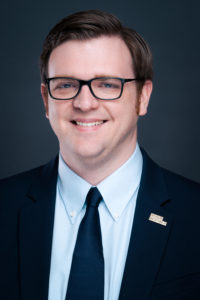
Andrew Rush is the Chief Executive Officer and President of Made In Space, Inc. (MIS). In his current role, Rush oversees strategic direction and operational management for the industry-leading space manufacturing company. Prior to this role, he served as general counsel for MIS.
Since his appointment in 2015, MIS has expanded its operational footprint within the United States with the addition of new office locations and the company’s workforce has increased by more than 50%. Under Rush’s leadership, the company has advanced its technology roadmap to include capabilities for on-orbit manufacturing and robotic assembly; development of space-enabled materials; and continued to advance exploration manufacturing. Additionally, his strategic vision has leveraged strong public-private partnerships and matured the company’s portfolio to include government and commercial markets.
Previously, Rush was a partner at PCT Law Group and prior to that he worked at Masten Space Systems. Rush earned a Bachelor of Science degree in physics from the University of North Florida and a Juris Doctor degree from Stetson University.
Andy Miller
Andy Miller is SVP of Innovation and Product Development at AARP. Prior to joining the organization, he was Chief Innovation Architect at Constant Contact and founder of the Small Business Innovation Loft, a startup accelerator. Andy founded CardStar, a leading mobile loyalty platform, which was acquired by Constant Contact in 2012. Prior to CardStar, Andy founded Lumifi, Quece (acquired by Intellectual Ventures), and RetirementSuite.com, and Served on the Board of Directors for StockCar Stocks Mutual Fund. In addition, Andy has held various positions at PFPC, T. Rowe Price, Putnam Investments and Bank of America.
Andy holds a BA in Economics from SUNY Oswego, a MS in Entrepreneurial Studies from Suffolk University. He serves as a board member at The Asbury Group, MassChallenge HealthTech, and the Suffolk University Marketing Council. Andy is also actively engaged in the startup ecosystem as an investor and mentor.
Susan Land
Land is IEEE 2020 President-Elect and a program manager for the U.S. Department of Defense with more than 30 years of industry experience in the application of software engineering methodologies and the management of information systems, as well as leadership of software and systems product development teams. Kathy is a Fellow and longtime volunteer for the IEEE having served three terms on the Institute of Electrical and Electronics Engineers (IEEE) Board of Directors, 2018 Vice President of IEEE Technical Activities, two terms as a member of the IEEE-USA Board of Directors, and three years on the IEEE WIE Committee. Ms. Land is the author or co-author of a number of texts, papers, podcasts, webinars all supporting sound software engineering principles and practical application of software process methodologies.
Session:The Fantastic Five, the 5 Soft Skills Every Technical Professional Should Develop.
Soft skills are in high demand, even in the most technical of fields. A recent Harris poll of hiring managers revealed that 77 percent of employers value soft skills as technical skills. Come and find out from one of today’s IEEE leaders, a hiring manager who will provide practical advice on how to help you translate your technical expertise into terms nontechnical people can understand and why this is critical to your personal and professional success.
Michelle Yung
Michelle is a business development manager at Northrop Grumman Corporation, Innovation Systems. Michelle joined Northrop Grumman following graduation from the University of Illinois in 2005. Since 2005, she has served in a variety of functions across multiple programs; from Quality Engineering on NASA programs to Business Development for Strategic Navy and Airforce programs. Michelle is also the chair of the Northrop Grumman Women’s International Network – Northern Utah Chapter. In her free time, she enjoys mountain biking, dancing and spending time with her newborn son.
Session: Women in Leadership & the Double Bind
Women and men with the same skill characteristics are often described in different ways, creating invisible barriers. Come learn more about this unconscious gender bias, how it creates a “double bind” and how you can be a part of the solution.
Brian Guidry
Brian Guidry is an Electrical Engineer and Project Manager with 20 years of experience at Lawrence Livermore National Laboratory (LLNL). Mr. Guidry received his BS in Computer Engineering from the University of Arizona and his MSEE from Stanford University. Mr. Guidry also has a Masters Certificate in System Design Management from MIT. Mr. Guidry specializes in Controls and Data Acquisition Systems and has spent the last 7 years in various project management and leadership roles throughout LLNL. Mr. Guidry also takes an active interest in the mentoring and development of early career individuals at LLNL.
Ilene Klein
For almost 20 years, Ilene Klein has been evangelizing security to anybody who would listen … and to management. During that time, she built and led compliance, governance, incident response, privacy, policy, security awareness, threat intelligence, and vulnerability management programs and frameworks. Ilene started her career as an electronics instructor and then traveled from Honolulu to Heidelberg as a systems engineer installing proprietary software for the U.S. Army and resolving system crashes. Ilene has earned multiple security and privacy certifications, and she’s won awards such as the CISM Geographic Excellence Award for earning the highest score in the North America geographical region on the December 2011 CISM examination and a 2018 Warrior Award for fighting on the “front lines” of cybersecurity.
Amritesh Rai
Amritesh Rai completed his schooling from The Doon School, Dehradun, India, in 2007 (top 5% of class), received his B.S. (summa cum laude) in Electrical and Computer Engineering (ECE) from The Ohio State University (OSU) in 2012, M.S. in ECE from The University of Texas at Austin (UT) in 2016, and Ph.D. in ECE from UT in 2019. He worked as a Graduate Research Assistant at UT’s Microelectronics Research Center and was advised by Professor Sanjay K. Banerjee. His specialization track was ‘Solid-State Electronics’ and his research focused on studying the electronic transport properties of novel atomically thin two-dimensional (2D) semiconducting materials. He has authored/co-authored more than 40 journal publications and conference proceedings and serves as a reviewer for several high impact factor peer-reviewed scientific journals including ACS Nano, 2D Materials, IEEE TED, IEEE EDL and APL. During graduate school, Amritesh worked as a ‘Graduate Research Intern’ at Argonne National Laboratory’s Center for Nanoscale Materials in Lemont, IL, as well as a ‘Technology Development Intern’ at the U.S. memory chip maker Micron Technology, Inc. in Boise, ID. He joined Micron Technology, Inc. in Boise as a full-time NAND Process Integration Engineer starting Fall 2019.
Amritesh received several accolades and recognitions throughout his academic/research career. While at OSU, he received the ‘Academic Excellence Award’ from the IEEE Columbus Section, the ‘Undergraduate Enrichment Award’ from the Honor Society of Phi Kappa Phi, and was inducted into IEEE-Eta Kappa Nu (IEEE-HKN) – the honor society of IEEE. At UT, he was selected by the UT ECE Department as its top-ranked nominee for the 2016 IBM Ph.D. Fellowship, and by Qualcomm as one of the U.S. Finalists for its highly competitive Qualcomm Innovation Fellowship (QIF) in 2017. He received the ‘Professional Development Award’ twice as well as the ‘Academic Enrichment Award’ from the UT Graduate School.
Amritesh has also served in various mentorship, outreach and leadership roles. He mentored several undergraduates, high school students and teachers as part of various STEM outreach and mentorship programs at UT, and is a two-time recipient of the ‘Best Mentor Award’ administered by UT’s NSF NASCENT Engineering Research Center (ERC). He also served as President of NASCENT ERC’s Student Leadership Council (SLC) from 2017-2018 and as the IEEE Region 5 Young Professionals (YP) Chair from 2018-2019. He is the Founder of the first-ever IEEE TEMS Graduate Student Chapter in IEEE Region 5 and currently serves as its Past Chair/Industry Advisor. For his outstanding leadership and volunteering efforts, Amritesh received the 2018 IEEE Region 5 Outstanding Individual Achievement Award. He was also featured in a Volunteer Spotlight Article published by IEEE YP on their IMPACT Blog. He is the Vice Chair and Ambassador Program Lead of the 2020 IEEE Rising Stars Conference, as well as the Publicity Vice Chair and Technical Committee Member of the 2020 IEEE Workshop on Microelectronics and Electron Devices (WMED). Amritesh is a professional member of IEEE, IEEE TEMS and IEEE EDS.
Ashwini Gokhale
Ashwini Gokhale is a Senior Consultant at Deloitte. Prior to consulting, she has worked in the oil & gas and banking industries. Ashwini majored in electrical engineering and computer science as well as minored in economics at MIT, and started her career as a field electrical engineer. She then received her MBA from Wharton. Ashwini has been an active member of IEEE for the past ten years (since undergrad). She currently serves as Chair of the Dallas YP chapter. In her spare time, she enjoys playing the viola, playing tennis, and water skiing.
Ramesh Nair
Ramesh Nair has over 6 years of experience in the semiconductor industry. Ramesh currently works as a Senior CAD Engineer with Intel Corporation in Folsom, California. At Intel, he works on tools, flows and methodology for next generation core CPU and SoC designs. Ramesh’s areas of technical interest includes Electronic Design Automation, Static Timing Analysis and Low Power Circuit Design. He is a recipient of multiple Intel Organizational and Department awards, 2014 Design Automation Conference (DAC) Young Research Fellowship and 2013-12 University Graduate Scholarship (UGS). He has published a book chapter and 7 research papers in various technical conferences. Ramesh holds a Master’s degree in Computer Engineering from University of Cincinnati.
Ramesh has over 10 years of IEEE volunteering experience in various section, region and global committees. Currently he sits on the IEEE-USA Board of Directors, working on recruiting and retention of young IEEE members in the US. Ramesh is a recipient of the 2018 IEEE MGA Achievement Award, 2017 IEEE MGA Young Professionals Achievement Award and 2017 IEEE Region 6 Director’s Recognition Award. He is also an advocate and volunteer for local STEM outreach initiatives.
Skyler Nix
Skyler Nix grew up in Albuquerque, NM, and joined the U.S. Army as a 33W Military Intelligence Systems Integrator/Maintainer after graduating high school. During his active duty years he served in 102nd MI BN in Cp. Essayons, Korea and 742nd MI BN in Ft. Meade, MD. Since leaving the military in 2007 he has worked for a multitude of defense contracting companies in various roles such as electronics installation and maintenance, satellite communications, training development, software sustainment, and information technology. He graduated from the University of Arizona with a BASc in Network Administration. His hobbies include small-form-factor computing devices, computer gaming, home networks, social engineering, and cyber security. He currently works as a systems engineer for space ground systems in Albuquerque for Northrop Grumman. He has served as a section chair for the Ft. Huachuca section and in the Region 6 Rising Stars conference planning committee. He currently serves as the Region 6 Government Relations Chair and Albuquerque YP Chair.
Dr. Anis Ben Arfi
Dr. Anis Ben Arfi is postdoctoral fellow at the iRadio Lab – University of Calgary. His research work is being conducted at Analog Devices, Inc in Ottawa were he focuses on 5G Wireless Systems. Anis has been involved in IEEE Rising Stars Conference since 2016. He found his passion volunteering with the conference team and, this year, he is serving as the 2020 IEEE Rising Stars general chair. From 2014 to 2018 , Ben Arfi has been part of the Institute of Electrical and Electronics Engineers (IEEE) Southern Alberta Section and has been instrumental in organizing events, industry tours as well as giving lectures. Currently, he volunteers with IEEE Ottawa Section, chairs the IEEE Canada Humanitarian Initiatives Committee, and coordinates the IEEE MTT-S Distinguished Microwave Lectures Program. Over the course of his studies, Anis has participated in several national and international events and conferences and has won numerous awards.
